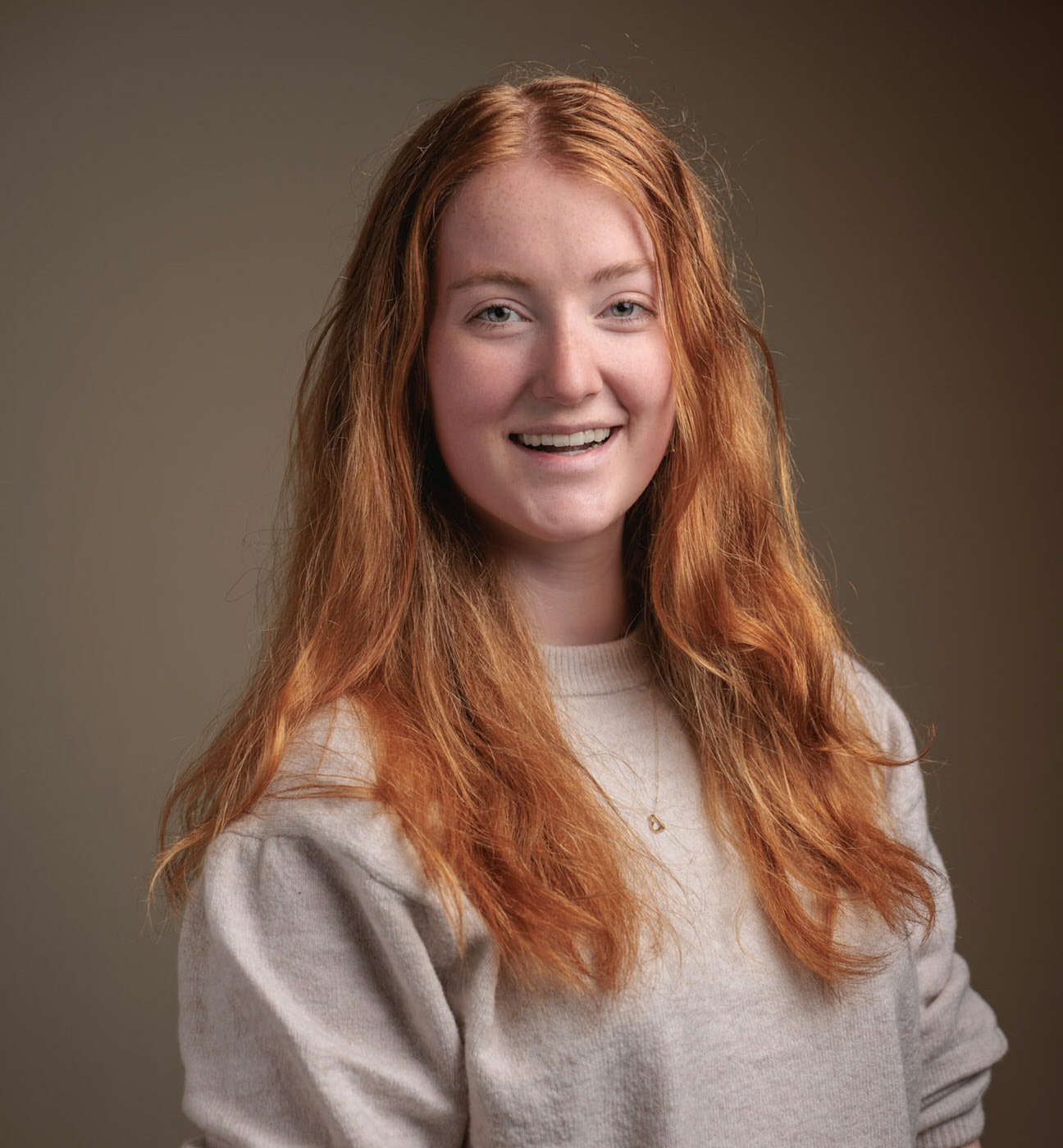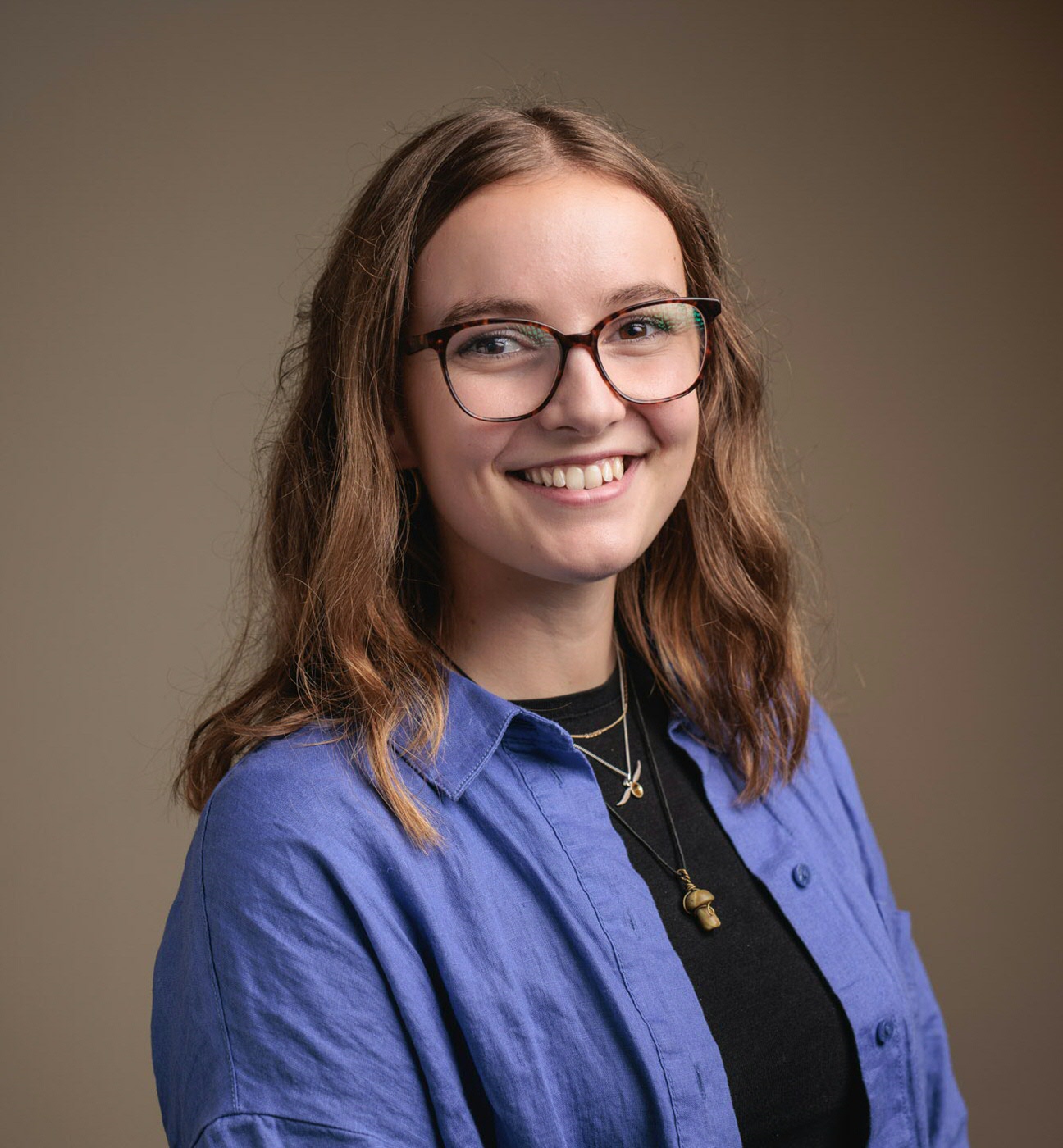
This programme addresses questions such as: What argumentative strategies are used in sustainability campaigns? How do style choices contribute to the persuasive power of a text?
Which skills and competencies are required to co-produce communicative artifacts with multimodal generative AI? How does cultural background influence the interpretation of indirect communication? How do media narratives about migration contribute to societal polarization?
Communication lies at the heart of social practices and civic engagement. From everyday family life to professional settings, our lives are shaped and organized through communication.In the Bachelor's programme Communication and Information Studies (CIS) you will learn:
CIS focuses on communication from a language perspective in the
broadest sense: CIS is about text, talk, gestures, pictures,
digital media, and more recently, generative AI.
Communication is not only about messages or outputs, but also about
processes involving people, attitudes and opinions. Therefore, you
will receive multidisciplinary training with elements from
linguistics, psychology, media studies, sociology, and
marketing.
CIS is an international degree programme taught in English, by both
Dutch and international staff who bring diverse academic
backgrounds and areas of expertise to the classroom. You will be
part of an international student community and collaborate with
peers from abroad. A Dutch Track is also available (see
Programme for more information).
- For international
students only: Apply before 28 February and receive a
decision on your admission within one month. See www.rug.nl/earlybird for
more information.
| Semesters | ||||
|---|---|---|---|---|
| CoursesCourse Catalog > | 1a | 1b | 2a | 2b |
| Essential Skills for Academics (5 EC) | ||||
| Changing Minds: Persuasion and Argumentation (10 EC) | ||||
| Materiality of Communication (10 EC) | ||||
| Interculturele Communicatie (5 EC) | ||||
| Text and Cognition (5 EC) | ||||
| Humane AI in Digital Societies: Introduction (10 EC) | ||||
| Observing Communication in the Wild: Qualitative Methods (10 EC) | ||||
| Stories We Live By: Mediating Identities (10 EC, optional) | ||||
| Language in Interaction (5 EC) | ||||
| Semesters | ||||
|---|---|---|---|---|
| CoursesCourse Catalog > | 1a | 1b | 2a | 2b |
| Conversation Analysis II (5 EC) | ||||
| Corporate and Organisational Communication 2 (5 EC) | ||||
| Pragmatiek (5 EC) | ||||
| Text Analysis II (5 EC) | ||||
| CIS Diversity Management 1 (5 EC) | ||||
| Current trends in CIS research (5 EC) | ||||
| Design and Evaluation (5 EC) | ||||
| Humane AI in Digital Societies: Projects (5 EC, optional) | ||||
| Social Media (5 EC, optional) | ||||
| Stories We Live By: Narrating the World (5 EC, optional) | ||||
| CIS Diversity management 1 Cultural Diversity (10 EC, optional) | ||||
| Health Communication (10 EC) | ||||
| Webdesign (10 EC, optional) | ||||
| Statistiek (5 EC) | ||||
| Semesters | ||||
|---|---|---|---|---|
| CoursesCourse Catalog > | 1a | 1b | 2a | 2b |
| Minor (30 EC) | ||||
| Minor (30 EC) | ||||
| Vragenlijst- en interviewontwerp (30 EC) | ||||
| ASP for Dutch Track (5 EC, optional) | ||||
| CIS Diversity management 1 Cultural Diversity (5 EC, optional) | ||||
| Corporate and Organisational Communication 3 (5 EC, optional) | ||||
| Design and Evaluation (5 EC, optional) | ||||
| Gezondheidscommunicatie (5 EC, optional) | ||||
| Pictures in Professional Communication (5 EC, optional) | ||||
| Questionnaire and Interview design (5 EC, optional) | ||||
| Webdesign (5 EC, optional) | ||||
| Ba-scriptie CIW Dutch (10 EC, optional) | ||||
| Ba-scriptie CIW Dutch (10 EC, optional) | ||||
| Ba-scriptie CIW met onderzoekswerkgroep (10 EC, optional) | ||||
| Ba-scriptie CIW met onderzoekswerkgroep (10 EC, optional) | ||||
| Case Study CIW (10 EC) | ||||
| Conversation Analysis II (10 EC, optional) | ||||
| Corporate and Organisational Communication 2: Marketing and Branding (10 EC, optional) | ||||
| Statistics (10 EC) | ||||
| CIS Diversity management 2: Linguistic Diversity (5 EC, optional) | ||||
| Health Communication (5 EC, optional) | ||||
| Usability (5 EC, optional) | ||||
| Webdesign (5 EC, optional) | ||||
Please note that above is the programme for the current academic year (2025-2026). From 2026-2027, the courses of this programme will change. More will be announced in Spring 2026.
| Programme options |
|---|
| Dutch track (specialization) If you sign up for the Dutch Track you will still be part of the International programme and the majority of your courses will still be in English. However, the Dutch track provides Dutch speaking students with the opportunity to develop their academic skills in the Dutch language. The track also allows students to prepare themselves for the Dutch language labour market. The Dutch track consists of seven Course Modules and the BA thesis. In these modules students will work with Dutch materials, seminars will be in the Dutch language and exams will also be in Dutch. Lectures and course readings are still in English. Participation in the Dutch Track is noted on the diploma. Courses in the Dutch Track: Pragmatics, Linguistics, Text Analysis 1 & 2, Conversation Analysis 1 & 2, Academic communication (Dutch version), BA thesis. |
| Minor (minor) The fifth semester of your studies is dedicated to your Minor: a coherent set of future-oriented course units. It prepares you for a follow-on Master's degree program or for entering the labour market. You can opt for a Career Minor, a Minor abroad, a University Minor or a Faculty Minor. |
| University of Groningen Honours College (honours program) The Honours College will give talented, motivated students the chance to be challenged even more by following Honours programmes and taking part in numerous other activities. The Honours College comprises a broadening part and a deepening part and has a study load of 30 ECTS credit points besides the 180 ECTS credit points from your regular Bachelor programme. |
If you have passed the VWO (pre-university education) exam in English, you satisfy the language requirement.
If you have passed the VWO (pre-university education) exam in English, you satisfy the language requirement.
If you have passed the VWO (pre-university education) exam in English, you satisfy the language requirement.
If you have passed the VWO (pre-university education) exam in English, you satisfy the language requirement.
Language requirement English: A VWO diploma or a subject certificate for VWO English (mark 6 or higher), minimum requirement of TOEFL iBT 90 (with a minimum of 21 on all items), or IELTS 6.5 (with a minimum of 6 on all items) or Cambridge C1 Advanced or C2 Proficiency with a minimum score of 180. For more information, see: https://www.rug.nl/let/studeren-bij-ons/bachelor/aanmelding-en-inschrijving/language-requirements-ba
The degree programme will organize a matching procedure. Attendance is optional. The advice is not binding.
The Faculty of Arts believes students can decide for themselves whether they match with their chosen programme based on the available bachelor programme information, by visiting the Open Days, and by participating in a Webclass and/ or Student for a Day. If you are unable to attend one of these activities, a final opportunity for matching is to contact one of the students of the programme in June.
If you have any further questions about matching, check out: www.rug.nl/matching
| Type of student | Deadline | Start course |
|---|---|---|
| Dutch students | 01 May 2026 | 01 September 2026 |
| 01 May 2027 | 01 September 2027 | |
| EU/EEA students | 01 May 2026 | 01 September 2026 |
| 01 May 2027 | 01 September 2027 | |
| non-EU/EEA students | 01 May 2026 | 01 September 2026 |
| 01 May 2027 | 01 September 2027 |
The Faculty of Arts believes students can decide for themselves whether they match with their chosen programme based on the available bachelor programme information, by visiting the Open Days, and by participating in a Webclass and/ or Student for a Day. If you are unable to attend one of these activities, a final opportunity for matching is to contact one of the students of the programme in June.
If you have any further questions about matching, check out: www.rug.nl/matching
| Specific requirements | More information |
|---|---|
| previous education |
A Dutch VWO diploma, a German Abitur, an International Baccalaureate diploma, a European Baccalaureate or another diploma that is sufficient for acceptance to a Dutch university. For other VWO-equivalent qualifications, see: https://www.rug.nl/vwo-equivalent-qualifications. Students with Dutch 'hbo-propedeuse' diploma also need to meet the language requirements mentioned below. |
| other admission requirements |
English language requirement: A VWO diploma or a subject certificate for VWO English (mark 6 or higher), minimum requirement of TOEFL iBT 90 (with a minimum of 21 on all items), or IELTS 6.5 (with a minimum of 6 on all items) or Cambridge C1 Advanced or C2 Proficiency with a minimum score of 180. |
| Type of student | Deadline | Start course |
|---|---|---|
| Dutch students | 01 May 2026 | 01 September 2026 |
| 01 May 2027 | 01 September 2027 | |
| EU/EEA students | 01 May 2026 | 01 September 2026 |
| 01 May 2027 | 01 September 2027 | |
| non-EU/EEA students | 01 May 2026 | 01 September 2026 |
| 01 May 2027 | 01 September 2027 |
After graduation, many students choose to continue with a Master's degree. The Bachelor's degree in Communication and Information Studies gives you direct access to several Master's tracks at the University of Groningen, including:
When combined with specific faculty minors, the BA in Communication and Information Studies also gives you direct access to additional tracks such as Dutch Studies (Dutch taught) and Journalism. The BA programme also gives access to a wide range of Master’s programmes in the Netherlands and abroad.
As a graduate of Communication and Information Studies you are well prepared for a career in many different fields. Thanks to your multidisciplinary research training in communication design, you will be ready to make an impact in every organisation or company that aims for successful communication. You can work in the communication department of (governmental) organizations, business communities, cultural organizations, or non-profit organizations. Jobs can include communication trainer, editor, marketing manager; i.e. a wide range of roles in communication strategy and design. Students who take the Dutch Track will be well-prepared for a job on the Dutch labour market.


Are you at secondary school and want to know what studying at university is like? The Communication and Information Studies programme is offering a web class! This online course from the University of Groningen is specially designed for secondary school students.
If you are interested in an Communication and Information Studies web class, register here.